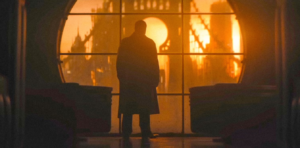A Guide to Public Safety at CUA

Photo by Patrick D. Lewis
By Patrick D. Lewis
With much of the Catholic University of America’s (CUA) community attention focused on public safety in the wake of rising crime in the D.C. area, two key University officials in public safety explained more about how public safety, emergency management, and law enforcement work on campus.
One of those officials is Kirk McLean, Associate Vice President for Emergency Management and Public Safety and Chief of the Department of Public Safety (DPS), CUA’s campus police department. Chief McLean was hired three years ago by former President, John Garvey. He previously served with the Prince George’s County, Maryland, Police Department for over 20 years.
“I absolutely love it,” Chief McLean said about his job.
The other University official, Renaud Scott II, is CUA’s Director of Emergency Response Planning, a new position. He operates the university’s Office of Emergency Management. Prior to his appointment by President Peter Kilpatrick. Scott served in the United States Army, worked in the Federal Government, and, most recently, served as Deputy Associate Director for Operations and Intelligence at the District of Columbia Homeland Security and Emergency Management Agency (HSEMA).
With the new office added, Chief McLean explained the basic structure of public safety on campus and how OEM fits into the scheme:
“The Public Safety component includes the Department of Public Safety (DPS) and the Office of Emergency Management (OEM). DPS and OEM are separate offices under our public safety and emergency management umbrella,” McLean said. ”Both DPS and OEM work well together to promote a culture of safety for our community.”
DPS is made up of campus police officers who serve as CUA’s first responders. OEM, staffed by Renaud Scott, coordinates campus-wide safety and emergency management efforts, holds training sessions, and provides related services to university officials.
DPS is staffed with 35 campus police officers, all of whom are commissioned as police officers by the District of Columbia and have full arrest power when on campus. These officers are assigned to one of three shifts – days, evenings, and midnights – that cover campus 24 hours a day, seven days a week.
“We currently have seven armed officers and plan to increase that number by spring semester, but the number of additional armed officers has not been confirmed,” said Chief McLean. He adds that at least one armed officer is assigned to each shift.
When someone calls DPS, the call is answered by a Communications Specialist who will dispatch officers to the crime scene. If necessary, other agencies, such as the Metropolitan Police Department or DC Fire and Emergency Medical Services Department, will also be contacted.
“Please know that emergency calls will likely receive a quicker response over non-emergencies,” Chief Major McLean said.
Of course, DPS does not only respond to crimes and other emergencies. Much of their work is preventing crime, ensuring the community stays informed and ready in case of emergency, and working with all community members and stakeholders to accomplish its aims.
“There are frequent safety training and drills offered, self-defense classes hosted, and a monthly Keep Catholic Safe newsletter shared with tips and safety updates,” Major McLean said. “Additionally, we patrol the campus 24 hours a day and work with our internal and external community to ensure that we all remain vigilant with maintaining a safe environment.”
Keeping the community safe is an effort that requires a contribution from everyone, including students. Chief McLean urges students to report activity they believe may be suspicious or threatening, take advantage of DPS’s services, and read the monthly Keep Catholic Safe newsletter.
To ensure they will always be kept up to date, especially about incidents that happen off-campus, Director Scott of OEM advises that members of the CUA community also sign up for alerts from several sources.
“We live, work, and play in the District. You can sign up for AlertDC. Diversifying your alert sources, I think, is an important tool,” was written in the newsletter.
Another key element of ensuring public safety is working with other relevant agencies and departments. DPS and OEM work extensively with University Communications, the Chief of Staff/President’s Office, Residence Life, Student Affairs, Environmental Health, and Safety, the Metropolitan Police Department, and Metro Transit Police, as well as others.
More information about safety improvements, including recent DPS newsletters, announcements, and the safety and security dashboard can be found here. Students can call DPS at 202-319-5111.






